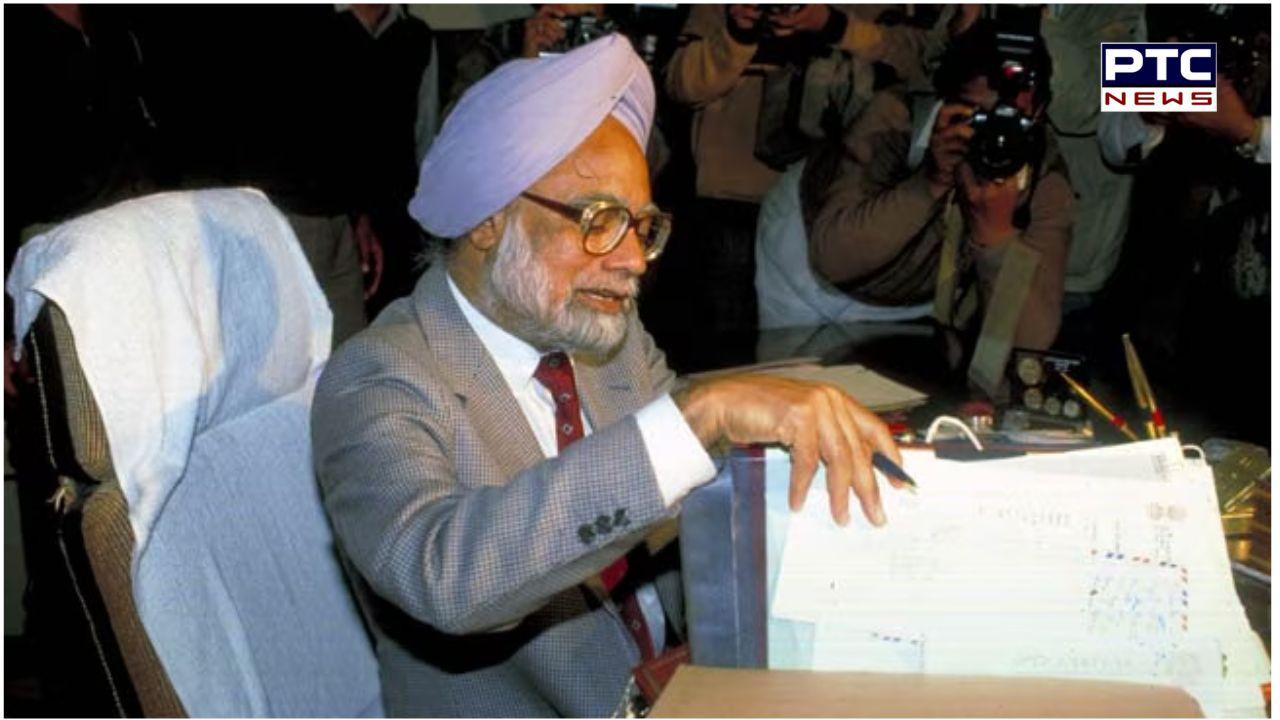

Dr Manmohan Singh: Key decisions that shaped India’s economic, social and political landscape
PTC Web Desk: Dr Manmohan Singh, during his tenure as Prime Minister of India from 2004 to 2014 and as Finance Minister in 1991, made several pivotal decisions that shaped India’s economic, social, and political landscape. Here are some of the most significant ones:
As Finance Minister (1991-1996)
Economic Liberalisation (1991):
Decision: Opened up the Indian economy to foreign investments, reduced trade barriers, and deregulated industries.
Impact: Transformed India from a closed economy to a globally competitive one, leading to rapid economic growth and foreign investment.
Devaluation of the Rupee (1991)
Decision: Drastically devalued the Indian rupee to address the balance of payments crisis.
Impact: Boosted exports and improved India’s foreign reserves.
Removal of Industrial Licensing (License Raj)
Decision: Abolished the requirement for government approval for many industries.
Impact: Encouraged entrepreneurship and industrial growth.
Introduction of Tax Reforms:
Decision: Streamlined direct and indirect taxes to improve compliance and broaden the tax base.
Impact: Strengthened India’s fiscal framework.
As Prime Minister (2004-2014)
Economic Initiatives
Mahatma Gandhi National Rural Employment Guarantee Act (MGNREGA):
Decision: Launched a flagship scheme guaranteeing 100 days of employment to rural households.
Impact: Alleviated rural poverty and created infrastructure in villages.
Right to Information Act (2005):
Decision: Empowered citizens by providing access to government records and decisions.
Impact: Enhanced transparency and accountability in governance.
Farm Loan Waiver (2008):
Decision: Waived Rs 60,000 crore worth of loans for distressed farmers.
Impact: Provided relief to millions of farmers but raised fiscal deficit concerns.
Goods and Services Tax (GST) Framework:
Decision: Initiated steps towards implementing a unified tax regime.
Impact: Though implemented later, it laid the groundwork for tax reform.
Foreign Policy and Strategic Decisions
Indo-US Civil Nuclear Agreement (2008):
Decision: Signed a landmark agreement with the US to allow civilian nuclear trade.
Impact: Ended India’s nuclear isolation and bolstered its energy sector.
Relations with Pakistan and China:
Decision: Advocated for peace talks, including the 2004 composite dialogue with Pakistan and trade agreements with China.
Impact: Fostered temporary goodwill but faced setbacks due to geopolitical tensions.
Strengthening India’s Global Role:
Decision: Played a leading role in G20 summits and global climate change negotiations.
Impact: Elevated India’s standing as a major global player.
Social and Welfare Initiatives
Right to Education Act (2009):
Decision: Made education a fundamental right for children aged 6 to 14.
Impact: Improved access to education for millions.
Food Security Act (2013):
Decision: Introduced subsidized food for two-thirds of India’s population.
Impact: Strengthened the safety net for underprivileged sections.
Urban Development:
Decision: Launched the Jawaharlal Nehru National Urban Renewal Mission (JNNURM).
Impact: Improved urban infrastructure and governance.
Defense and National Security
Modernisation of Armed Forces:
Decision: Increased defense spending and modernized the military with new acquisitions.
Impact: Enhanced India's defense capabilities.
Response to 26/11 Mumbai Attacks (2008):
Decision: Strengthened counter-terrorism measures and created the National Investigation Agency (NIA).
Impact: Improved domestic security framework.
Challenges and Controversies
2G Spectrum and Coal Allocation Scandals:
Though these scams tarnished his government’s image, Dr. Singh’s integrity was widely respected.
Handling of the 2008 Global Financial Crisis:
Decision: Implemented a stimulus package to revive growth.
Impact: Helped India recover faster than most economies.
- With inputs from agencies
